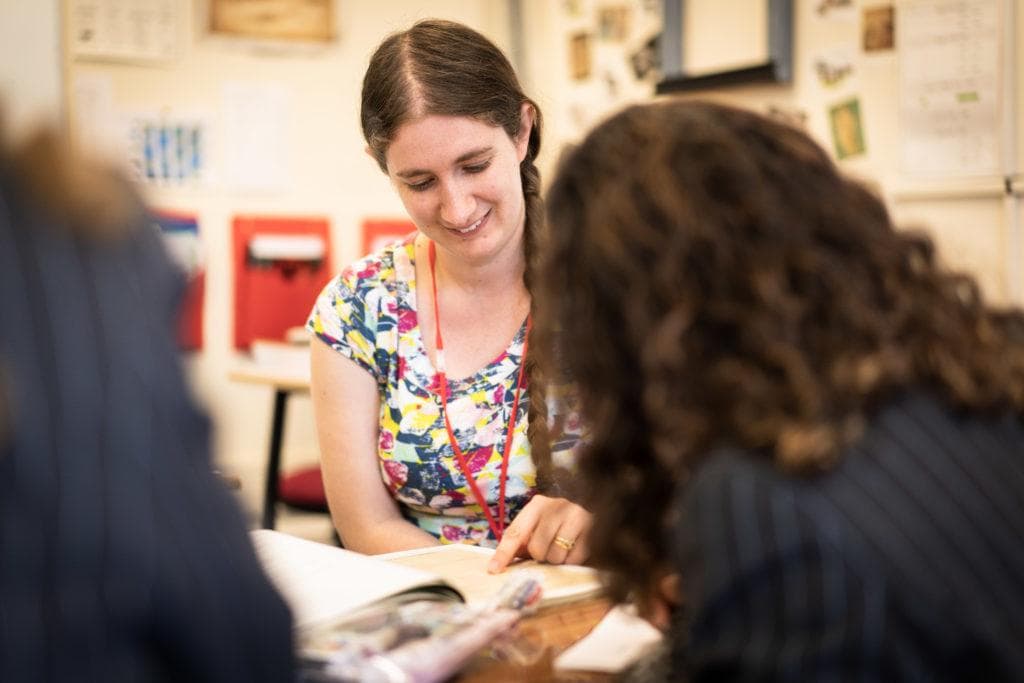Learning about the classical civilisations, texts and languages that have shaped the Western World and underpin so much of modern culture.

Who can deny the influence of the ancient world on our own when faced with headlines about the London 2012 Olympics, the sell-out of the recent British Museum Pompeii exhibition and the controversy surrounding the choice of Ovid ‘amores’ as a Latin A Level set text? Here in our Classics department pupils quickly realise that this subject is anything but dead!
“Your passion and enthusiasm for the subject has made Classics lessons very enjoyable” AS student
In the Classics department we are lucky to have a visually stimulating subject with plenty of archaeological finds to fascinate pupils, and we take every opportunity for them to study and experience these first-hand. As well as timetabled lessons we offer a variety of clubs, competitions and trips available to pupils at each stage of their school career.
“Thank you for everything you have done for me over the past two years – watch out for all my younger brothers!” A Level student
Lower School
All Year 7 pupils study the world of the Ancient Greeks beginning with their alphabet, the Greek gods and mythology. This can be extended through the weekly held Lower School Ancient Greek Club where pupils can explore the language further. In the summer term pupils study versions of Homer’s Iliad and Odyssey. During Year 8 they are introduced to the Romans through a focus on Latin. They study stories set in the exciting context of ancient Pompeii, as well as visiting Hadrian’s Wall, the Roman fort and settlement of Vindolanda, and the Roman army museum as part of their Cumbria trip. They develop an understanding of military and civilian life, including the Roman hypocaust system, which is then channelled into the Year 8 Bath House design competition.
Middle School
Pupils in Year 9 can opt to study Latin or Classical Civilisation, both of which are offered at GCSE. Those studying Latin also have the option of studying Ancient Greek for one period every week. Those taking GCSE enjoy priority places on the exciting trips offered by the Classics department, which last year included the Bay of Naples to see Pompeii, Herculaneum and Vesuvius itself. The department is keen for pupils to take ownership of their course through regular self-reflection against the assessment criteria given by the exam board – this enables them to measure their progress and discuss it at Parents Evenings. We also offer additional study sessions and clinics for those who would like extra support during study leave.
Sixth Form
“Our own world would be immeasurably the poorer, and immeasurably less comprehensible to us, if we did not continue to interact with the Roman past.” Mary Beard
Latin A Level is taught in small classes and by specialist teachers. Our students enjoy annual trips to university study days and lectures. Students read a wide range of literature – both verse and prose and through this will gain a deep understanding of life and culture of the ancient world.
In Year 12 students visit Rome on our study tour and see an exciting selection of monuments and the ancient capital. This includes dining at the British School in Rome where they also attend an evening lecture. The programme of study days and trips that we provide is designed to take our students far beyond what is required for the final exam and give them
an insight into why we are so passionate about this exciting subject.
Students sit written exams on unseen and seen texts. They are expected to demonstrate skill in translation, comprehension and literary analysis. There is also an optional element of prose composition.
“We felt very well prepared for our exams” twin A Level students
Exam Results
The average of the results in GCSE Classical Civilisation over the most recent three year period (2022, 2021, 2020) is:
| 9 | 21% |
| 9-8 | 52% |
| 9-7 | 57% |
| 9-4 | 98% |
The average of the results in Latin over the most recent three year period (2022, 2021, 2020) is:
| GCSE | |
| 9 | 15% |
| 9-8 | 62% |
| 9-7 | 80% |
| 9-4 | 100% |
| A Level | |
| A* | 0% |
| A* – A | 34% |
| A* – B | 84% |

